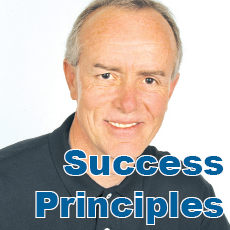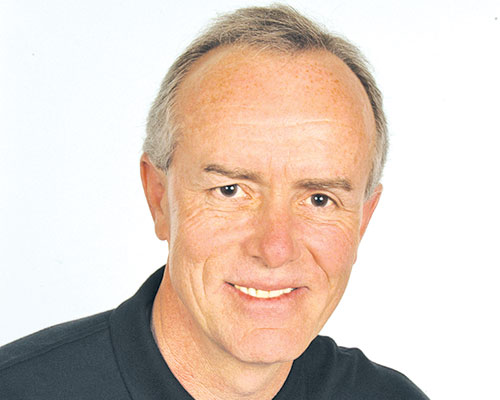
William “Bud” Hart, of Haverhill, shares “Success Principles”—ideas for living a greater, better and more accomplished life, and building habits that stick. He also coaches clients to incorporate strategies for boosting their mental and physical performance during everyday living.
I was asked again yesterday, why I became a coach. It’s not the first time. My wife asks me this very same question often. And she will testify (based on fact) that my primary reason obviously isn’t to make money, although I do intend to make money coaching. The questions of how and when are a work in progress.
For me coaching is a natural career step, like a whole personal development course on its own. Adopting the coaching profession was an obvious way for me to officially practice what I have always intuitively done within my work as an independent business consultant. Listen and accompany clients in the development of their own resources to achieve their own ambitions and get what they want.
There’s a reason I spent thousands of dollars getting trained and certified to help people. Coaches can make a big difference in improving performance and they really can change peoples’ lives financially and in every other way for the better. And ability and expertise (training and certification) are important. Nevertheless mainstream coaching remains difficult to sell to people outside of athletes, musicians, singers and top executives.
When I started I honestly thought, like so many that paid good money to be trained with me, that we all would make good money; even a living coaching if that is all we want to do (which thankfully it wasn’t and isn’t for me). About mid way through my training I began to get a different sense. Even some well established and polished coaches in the field and some doing the training seemed a bit skeptical about the potential for everyone to be able to turn coaching into a business. But it was after I graduated and received my International Coach Federation, Associate Certified Coach (ACC) status that I realized it for sure. Coaching is truly a hard sell. In this age of instant gratification who wants to spend dollars on a nontraditional development process and the chance that someone really can help us find and get exactly what we want in life. Where is the guarantee?
Unless you’re a sports, music, executive or specialized business coach, or have a niche where a significant number of people value coaching, (if this even exists) and are willing to pay, coaching is not a business, (at least not as I see it). It is just a skill. And unless you have a record of success applying that skill (like Bill Belichick) coaches are presented with a dilemma, because like any skill you need to practice, practice, practice, to get better at it and that takes clients (or some personal ingenuity to integrate practice into a daily routine like I do).
For many coaches the pressure to make a living at it is too much and they quit (I know some). But for me coaching is an everyday practice, not a philosophy, or a business. The most important thing that I have learned about coaching is that it is NOT a business it IS a skill. And it is most useful when combined with any other expertise one might have. Sometimes people just need a little guidance, advice, and hand holding to stay on track and win. This may just be the reason, as the Bible references many times, that Jesus always sent His disciples out two by two.
William “Bud” Hart is a certified “Mindset” Coach, Accountability Partner and Business Consultant. Visit Hart Group, www.hartgroupma.com for more on coaching.

